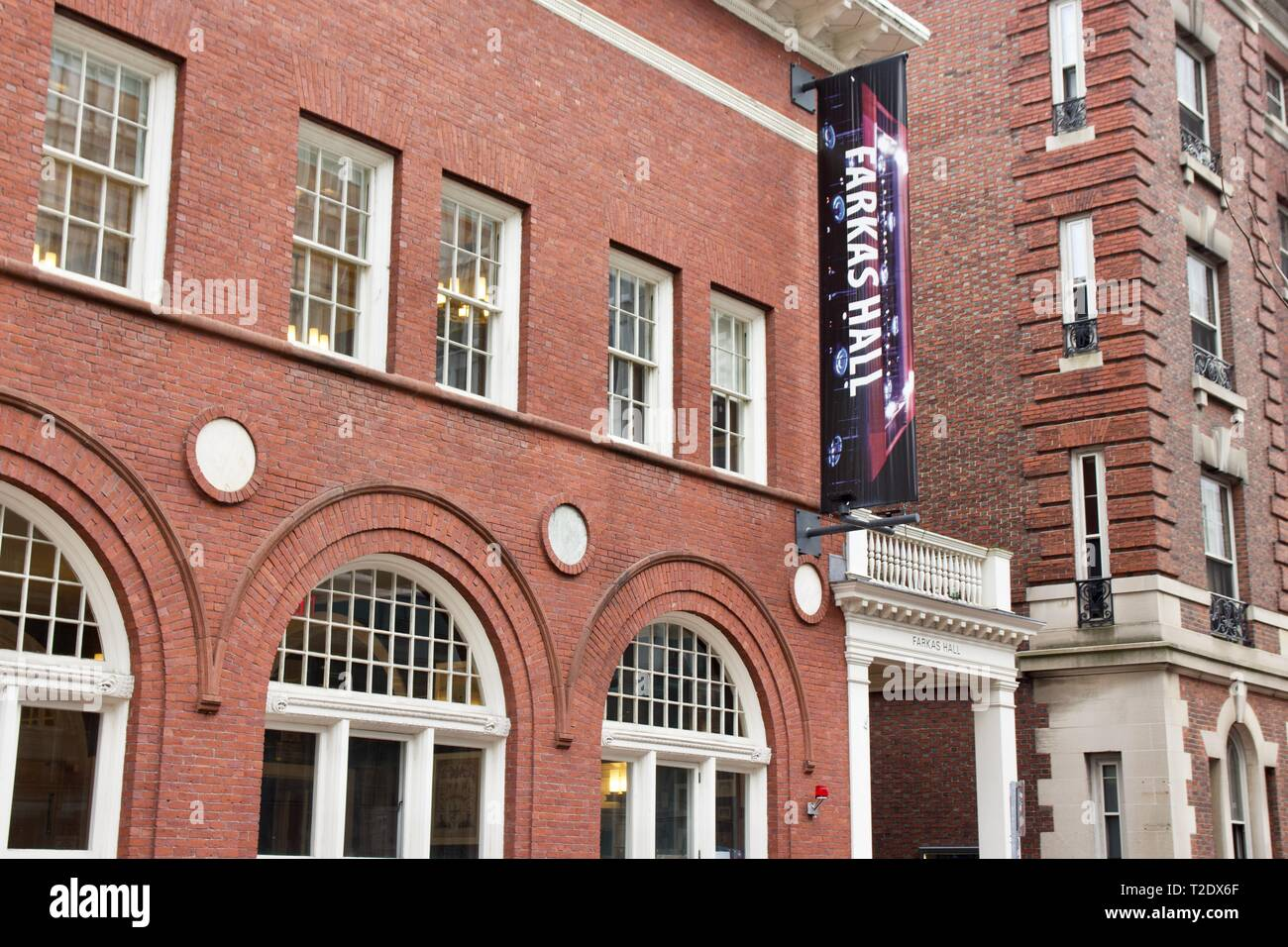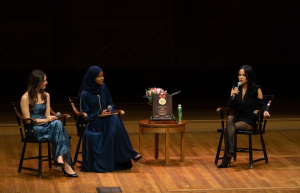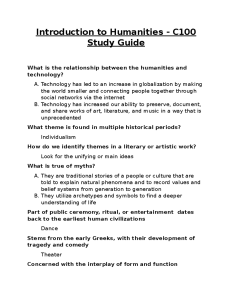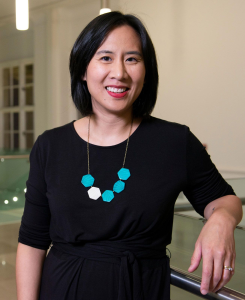The Harvard Office for the Arts has been a cornerstone of artistic exploration and innovation on campus for over 50 years, celebrating its rich history during the recent OFA 50th anniversary event. This vibrant hub is dedicated to fostering arts education at Harvard, providing students with unparalleled opportunities to engage in various creative disciplines, from theater to visual arts. Programs such as the ceramics program at Harvard empower students like Tiffany Onyeiwu to rediscover their passion for art, while student performances at Harvard showcase the diverse talents across the university. The OFA nurtures not only individual creativity but also a community of artists who celebrate storytelling through music, dance, and poetry. As part of the Harvard arts programs, the Office for the Arts continues to affirm that the arts are essential to the educational experience and integral to personal growth for every student.
At the heart of Harvard University’s creative landscape is the Office for the Arts, a place where students can cultivate their artistic passions and explore a variety of disciplines. Recently, this influential organization marked its milestone 50th anniversary, highlighting the importance of arts education and community engagement within the university. The OFA not only supports traditional arts practices but also emphasizes the interconnection of creativity and academic success. With its offerings, including dynamic student performances and specialized programs like the ceramics program, it nurtures talents and inspires students to express themselves. This thriving arts initiative plays a vital role in shaping a vibrant cultural community at Harvard.
Celebrating 50 Years of the Office for the Arts
The Office for the Arts (OFA) at Harvard has reached a remarkable milestone, celebrating its 50th anniversary as a pivotal part of the university’s cultural landscape. This celebration underscores the significance of the arts in higher education and the myriad of ways it enriches student lives. Through various programs and initiatives, the OFA has nurtured creativity, allowing students from diverse backgrounds to express themselves through storytelling, music, dance, and visual arts. This anniversary is not merely a remembrance of the past; it is a testament to the enduring importance of an arts education at Harvard.
As part of the OFA’s 50th anniversary festivities, the celebration showcased dynamic student performances that highlighted the exceptional talent present within the Harvard community. Students shared their personal journeys in the arts, demonstrating how participation in programs like the Ceramics Program invigorated their passions and sculpted their identities. This milestone serves as a rallying point for current and past students alike, showcasing how essential the arts are not just to individual growth but to fostering a vibrant campus culture.
The Impact of Harvard Arts Programs on Student Life
Harvard’s commitment to arts education is reflected in the diverse range of programs available for students. From the rich offerings in theater to the innovative visual arts initiatives, students like Tiffany Onyeiwu have found their creative paths in places like the Quincy House ceramics studio. These opportunities allow students to engage in hands-on experiences that not only enhance their artistic skills but also provide a therapeutic outlet. In this supportive environment, students can explore their interests freely and develop a deeper understanding of their own creative processes.
Moreover, programs supported by the OFA have led to remarkable student-led productions and projects, such as the short films and theatrical performances that contribute to the college’s storied tradition in the arts. With engagement across multiple mediums, students learn the value of collaboration and self-expression, reinforcing the significance of the arts within their academic pursuits. By actively participating in these programs, students are not only enhancing their artistic abilities but are also forming invaluable connections that will serve them well beyond their time at Harvard.
Student Performances and Narratives at Harvard
The recent Office for the Arts anniversary celebration brought together a tapestry of student performances that illustrated the rich diversity of talent at Harvard. From operatic renditions to vibrant dance performances, students took to the stage to share their unique stories and insights through their art forms. This event reaffirmed the vital role that the OFA plays in promoting and facilitating student engagement with the arts, helping foster a community where creativity thrives.
Momentous occasions like these allow students to witness the transformative power of art, both in their lives and in the world around them. Maranatha Paul, one of the performers, eloquently expressed the necessity of sharing one’s perspective through writing and performance, reminding us that art is a communicative force that bridges differences and fosters empathy. Such narratives not only enhance the richness of the Harvard experience but also serve as a vital reminder of the importance of art in understanding our shared human experience.
The Role of Ceramics in Arts Education at Harvard
Harvard’s Ceramics Program, part of the larger offerings of the Office for the Arts, stands out as a critical touchstone for students looking to explore their creative instincts. For many students, including Tiffany Onyeiwu, it offers a sanctuary where they can connect with the elemental process of clay-making. This tactile art form serves as an engaging method for students to learn patience, precision, and the importance of detaching oneself from perfection, thereby enhancing their creative expression and skills.
Working with clay encourages students to delve into their artistic vulnerabilities. Throughout her journey, Onyeiwu found that the process of creating with ceramics allowed her to control the chaos of creativity while also listening to the raw potential of the material. Such engagement in the arts supports broader learning objectives at Harvard, fostering a holistic education where students develop essential skills beyond their academic disciplines, reinforcing the importance of creative practices in personal and professional growth.
Artists in Residence: Shaping Future Generations
Another significant aspect of the Office for the Arts is its Artist in Residence program, which allows students to benefit from interactions with established artists in various disciplines. This initiative not only enhances the educational experience but also serves to elevate students’ understanding of professional practices in the arts. These residencies provide invaluable mentorship opportunities for aspiring artists, allowing them to gain insights directly from those who have navigated similar paths.
Through workshops, performances, and one-on-one mentorship, student artists cultivate relationships that inspire and inform their own creative endeavors. The exchange of ideas fosters a vibrant theatrical atmosphere reflective of the collaborative spirit at Harvard. This program is crucial in encouraging students to take bold artistic risks and explore paths they may not have considered, ensuring a continued legacy of artistic innovation and excellence at the university.
The Importance of Cultural Events in Harvard’s Arts Community
Cultural events hosted by the Office for the Arts are essential in fostering a robust arts community at Harvard. These events bring together students, faculty, and alumni, creating opportunities for dialogue and collaboration across disciplines. By showcasing a wide array of artistic expressions, the OFA nurtures a sense of belonging and community among participants, where individuals can celebrate their shared passion for the arts.
Moreover, cultural events serve as a vital platform for underrepresented voices and emerging artists. They encourage students to take part in the larger narrative of arts within education and society. With programs like these, Harvard affirms its commitment to not just excellence in academics but also to the nurturing of creativity and cultural awareness, working towards a more inclusive and diverse artistic community that resonates with all.
The Future of Arts Education at Harvard
As we look ahead, the future of arts education at Harvard appears robust and promising, thanks to ongoing support from the Office for the Arts. The 50th anniversary celebration not only highlighted past achievements but also set the tone for future initiatives that will continue to expand the role of the arts within the university. This constant progression emphasizes a commitment to integrating artistic endeavors into the overall Harvard experience.
Inclusion of innovative programs and expanded access to resources reflect a deep understanding that the arts are essential components that enhance critical thinking, creativity, and empathy among students. By emboldening new generations of artists, Harvard ensures that the cultural landscape remains vibrant, dynamic, and reflective of the community’s diverse voices and experiences, thereby reinforcing the vital role of the arts in education.
Spotlight on Alumni Contributions to the Arts
Notable alumni of Harvard, such as actor Courtney B. Vance and theater director Diane Paulus, have made significant contributions to the arts, underscoring the lasting impact of a Harvard education. Their experiences reflect how the foundational skills and support from the Office for the Arts continue to influence and shape their careers. Alumni engagement fosters a network of inspiration that current students can tap into, connecting them to real-world outcomes that enrich their educational journeys.
Through their works and mentoring, these alumni give back to the arts community, demonstrating that the cultivation of talent within Harvard extends far beyond graduation. Events featuring such accomplished artists not only enhance the cultural fabric of the university but also serve as a reminder to students of the potential waiting for them upon fulfilling their educational pursuits.
The Role of Dance in Harvard’s Arts Programs
Dance has emerged as a vital part of Harvard’s arts programming, providing students with not just an outlet for physical expression but also a means to delve into cultural narratives and histories. With groups such as Harvard Bhangra and Omo Naija X Wahala Boys, students explore various styles, fostering a sense of community through shared creative expression. These dance ensembles contribute to a vibrant arts scene that educates participants on discipline, collaboration, and performance art.
The presence of diverse dance forms within the curriculum underscores the importance of physicality in art education. It invigorates the body and mind, allowing students to express complex emotions and experiences through movement. This holistic approach to arts education, supported by the OFA, exemplifies how engagement in dance can lead to enriched academic experiences, personal growth, and lifelong appreciation of the arts.
Frequently Asked Questions
What is the mission of the Harvard Office for the Arts?
The Harvard Office for the Arts (OFA) is dedicated to integrating the arts into a Harvard education, emphasizing that artistic practices are vital for personal and academic development. The OFA supports various arts programs, ensuring that creativity and cultural experiences are accessible to all students.
How does the Harvard Office for the Arts celebrate its 50th anniversary?
The Harvard Office for the Arts celebrated its 50th anniversary with a vibrant event at Sanders Theatre that featured storytelling, music, dance, poetry, and performances by students and alumni, showcasing the rich artistic culture at Harvard.
What types of arts education does the OFA provide at Harvard?
The Office for the Arts at Harvard offers a range of arts education programs, including classes in visual arts, theater, music, and dance. This includes specialized programs like the ceramics program, which allows students to explore their creativity and craft skills.
How do student performances at Harvard contribute to the broader arts community?
Student performances at Harvard, supported by the Office for the Arts, provide a platform for emerging artists to share their work, connect with audiences, and engage with creativity. These events encourage collaboration and showcase the diversity of artistic talent among students.
What opportunities exist for students in the ceramics program at Harvard’s Office for the Arts?
The ceramics program at Harvard’s Office for the Arts offers students hands-on experience in pottery and sculpture, enabling them to develop their artistic skills in a supportive environment. This program encourages exploration and creative expression through various ceramic techniques.
How can students get involved with arts programs at the Harvard Office for the Arts?
Students can get involved with arts programs at the Harvard Office for the Arts by participating in classes, performances, workshops, and community events. They can also explore funding opportunities for their own artistic projects through OFA resources.
Who are some notable alumni involved with the Harvard Office for the Arts?
Notable alumni who have been involved with the Harvard Office for the Arts include actors such as Courtney Vance and directors like Diane Paulus, who have continued to contribute to the arts professionally after their education at Harvard.
What is the significance of the Office for the Arts in the context of Harvard’s academic environment?
The Office for the Arts is significant as it champions the role of arts in enriching the academic environment at Harvard, highlighting that knowledge can be gained not just in classrooms, but also through engagement in artistic practices and performances.
How can the Harvard Office for the Arts impact students’ future careers?
Engagement with the Harvard Office for the Arts can significantly impact students’ future careers by providing them with practical skills, networking opportunities, and exposure to the arts industry, thereby enriching their professional and personal lives.
What events does the OFA host to promote arts education and student engagement?
The Harvard Office for the Arts hosts various events, including performances, workshops, discussions, and celebrations like the 50th anniversary event that foster engagement with the arts and encourage students to showcase their talents.
| Topic | Key Points |
|---|---|
| 50th Anniversary of OFA | A celebration including storytelling, music, dance, poetry, and performances by various students and alumni. |
| Personal Experiences | Students shared how their artistic journeys began and evolved with support from OFA, highlighting both the struggles and joys of engaging with art. |
| Impact of Arts in Education | According to Fiona Coffey, the arts are essential to a Harvard education and contribute significantly to shaping knowledge and pedagogy beyond traditional academic settings. |
| Alumni Reflections | Notable alumni reflected on how their experiences at Harvard and involvement in arts shaped their careers and lives, emphasizing the importance of creativity in personal growth. |
| Encouragement for Future Generations | Artists and directors urged the audience to embrace the courage to create and share their unique perspectives, reinforcing the message of inspiration through art. |
Summary
The Harvard Office for the Arts has marked its 50th anniversary with a spectacular celebration that showcases the integral role of the arts in education and community life at Harvard. This milestone not only reflects the historical significance of the OFA but also highlights the ongoing commitment to fostering creativity among students and alumni. Through diverse storytelling, performances, and personal anecdotes, attendees were reminded of how art can inspire, heal, and connect individuals. With an emphasis on bravery in art-making and the importance of individual perspectives, the event illustrated that the Harvard Office for the Arts remains a vital force in enriching the academic and cultural fabric of the university.




